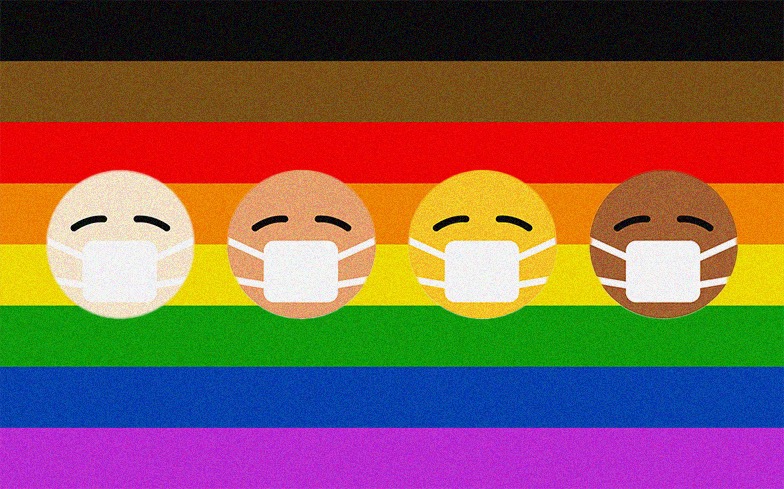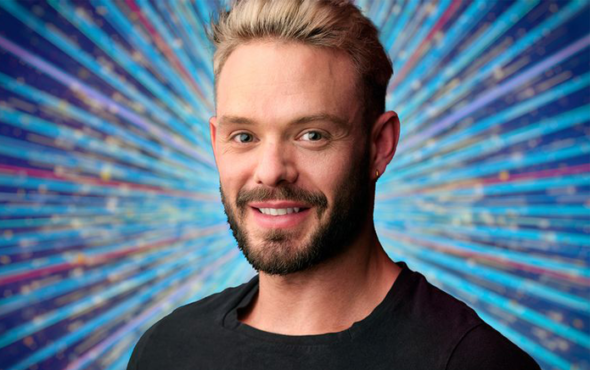
It is well documented that in times of crisis those who are most marginalized tend to suffer disproportionately compared to the broader population. COVID-19 is no exception.
For LGBTQ+ people this is an especially difficult time. On any given day, we face violence, discrimination, harassment, and a lack of acceptance. Even by those we love. Even in countries with explicit policy and legislative protections in place. In over a third of the world, our identities are criminalized. And in times of crisis all of these injustices are amplified, because we also face relief efforts which too often forget to include us.
Earlier this month OutRight Action International launched a pioneering report – “Vulnerability Amplified. The Effects of the COVID-19 Pandemic on LGBTIQ People”, and it paints a frightening picture of the particular and devastating challenges facing LGBTQ+ people.
The predominant threat facing LGBTQ+ people is rising food and shelter insecurity. Why? Because in countries around the globe LGBTQ+ people are over-represented in the informal economy, without job security. For example, William in Belize is a drag entertainer. He highlights that “as an effeminate gay person, this is the only job I can find”. But now there are no events or gatherings, so he earns nothing. Meanwhile, Beryl in Belgium draws attention to the fact that far too many trans women end up in sex work due to discrimination in other sectors. Now, “this is a community which is completely cut off from its source of income, and unable to access social security measures.”

While emergency relief is available in many places, available does not equal accessible if you are a discriminated and invisible community. In the Philippines, food aid was given out to “families,” but that definition, depending on the location, was not always inclusive of same-sex couples. In Panama, gendered shopping days were introduced to prevent overcrowding. But the definition of gender was based on biological sex. As a result, numerous trans people were arrested for, supposedly, violating the restrictions and ended up detained in prisons, facing exposure to the COVID-19 virus, and the threat of harassment and abuse.
With loss of income, loss of shelter follows, putting LGBTQ+ people at risk of either homelessness and exposure to COVID-19, or return to often unsupportive family homes. Perhaps unsurprisingly, lockdowns have been accompanied by news of soaring domestic violence and abuse rates across the world. This is especially relevant for LGBTQ+ people, as domestic and family violence is the most common form of violence we experience.
Access to healthcare is another key issue highlighted by OutRight. In fact, for LGBTQ+ people, accessing supportive and accepting health care is tricky even in the absence of a pandemic. We experience discrimination, hateful attitudes and even refusal of services in hospitals even in the US, where I live. It is no wonder, then, that queer people may be reluctant to seek care now, putting us at risk of more severe effects if infected.
Liza, a trans woman in Russia says: “I will call the ambulance only if I am suffocating; only if I feel a very real threat to my life. I’m afraid that if I get hospitalized, I will be placed in the men’s ward, and that the doctors will not understand my situation, that they will treat me worse than others.”
Moreover, for people living with HIV, or trans and intersex people receiving gender affirming care, regular medication is crucial. But in countless places this is now not possible, either due to overwhelmed health care systems, lockdowns, or anything non-COVID related being designated non-essential.
Under more normal circumstances, when LGBTQ+ people experience violence, don’t have access to friendly and respectful medical care, or are faced with a loss of shelter, LGBTQ+ community organisations and spaces step in. They support their respective communities with legal support and connect them to networks of medical professionals. They even run testing points and distribute crucial medication. Many also run LGBTQ+ shelters, and advocate for the provision of inclusive services and changing laws. Now, with lockdowns and physical distancing measures in place, LGBTQ+ people are cut off from these crucial support networks, while the organisations themselves are facing an uncertain future.
The crisis is a global one. It affects each of us. And each of us has a role to play in making it better. For LGBTQ+ people this is a crisis within a crisis, facing increases of hunger, homelessness, violence and even death because of the pandemic. So OutRight launched the COVID-19 Global LGBTIQ Emergency Fund, to support our community – LGBTQ+ organisations around the world – as they struggle to support their respective communities through this unprecedented time.
Social media is filled with neighbours helping neighbours, musicians putting on free shows, those who can sew making face-masks for those who can not, hotels giving rooms to health-care workers… Each of us can do something. What is the role you can play, to support your immediate community, and the larger LGBTQ+ community through this time?
Aalap Shah is a member of the Board of OutRight Action International, one of the oldest human rights organizations working to advance equality and opportunities for LGBTQ+ people around the world, and Director of Product for Wikibuy.
Aalap is a mission-driven product innovator, who is passionate about human centered design and has successfully led strategy, product, growth, and M&A for startups and Fortune 500 companies. Aalap lives in New York City with his partner Gregg.



